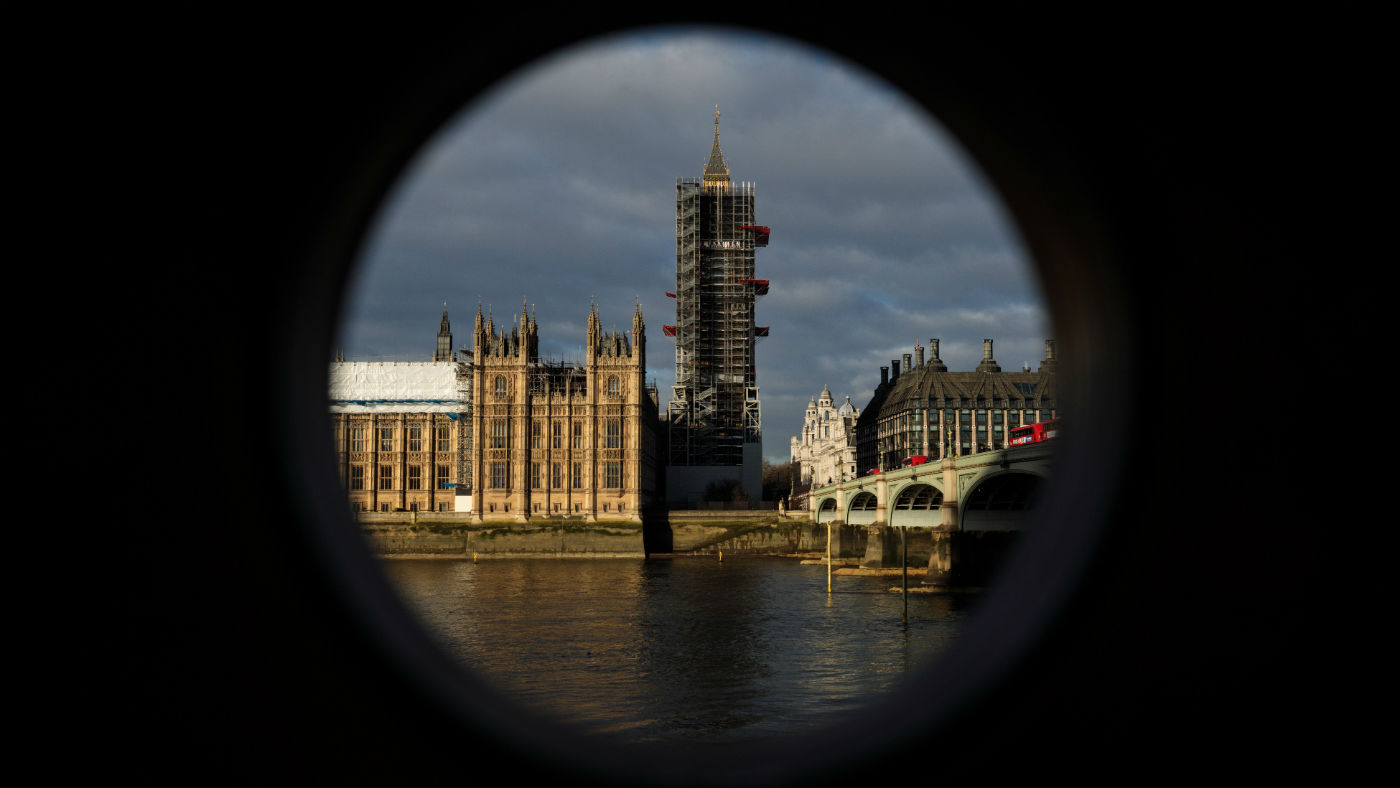Can MPs force people to testify?
Former Vote Leave strategist Dominic Cummings follows Mark Zuckerberg in declining request to appear before MPs

A free daily email with the biggest news stories of the day – and the best features from TheWeek.com
You are now subscribed
Your newsletter sign-up was successful
The head of the Vote Leave Brexit campaign has become the latest public figure to refuse to appear before MPs, sparking debate about whether parliament should have the power to force people to testify.
Votes Leave’s chief strategist, Dominic Cummings, who was credited with being the brains behind the successful Brexit campaign, told MPs on the select committee investigating fake news he would not be willing to answer questions in public before the Electoral Commission finished its investigation into the referendum campaign, he said in a blog post.
Cummings, who is set to be portrayed by Benedict Cumberbatch in an forthcoming Channel 4 dramatisation of the referendum campaign, rejected a formal summons from the digital culture, media and sport committee, which demanded he appear before the end of May.
The Week
Escape your echo chamber. Get the facts behind the news, plus analysis from multiple perspectives.

Sign up for The Week's Free Newsletters
From our morning news briefing to a weekly Good News Newsletter, get the best of The Week delivered directly to your inbox.
From our morning news briefing to a weekly Good News Newsletter, get the best of The Week delivered directly to your inbox.
He is not the only public figure to refuse an invitation to appear before MPs. Earlier this week, says The Guardian, Facebook CEO Mark Zuckerberg said he would not answer questions from parliament surrounding data and privacy in the wake of the Cambridge Analytic scandal. He instead got one of his deputies to appear in his place.
The Metro described the move as “sticking tow figures up at the UK”, while committee chair, Damian Collins, called it “absolutely astonishing”. Zuckerberg has since agreed to answer questions before MEPs in the European Parliament.
The Guardian says two refusals in less than a week “raises questions about the system of compelling reluctant witnesses to appear in front of parliament”.
In theory, MPs have “the power to issue fines or even threaten imprisonment for non-attendance”, says the paper, but in reality, “the system relies largely on consent, formal rebukes and the idea that individuals can be shamed by the media into attending”.
A free daily email with the biggest news stories of the day – and the best features from TheWeek.com
One such example is Sports Direct founder, Mike Ashley, who bowed to public pressure and appeared before MPs to explain his company’s treatment of workers, after initially indicating he would reject a formal summons.
In most cases, either through fear of legal repercussions, public condemnation or as an exercise in damage-limitation, a formal summons will compel people to appear before MPs.
But it remains an option of last resort, and carries with it serious risks if they are ignored, says Hannah White, of the Institute for Government. “Every time everyone observe the emperor has no clothes, in that parliament can’t force people to come, they lose a little bit of their authority,” she says.
-
 What to know before filing your own taxes for the first time
What to know before filing your own taxes for the first timethe explainer Tackle this financial milestone with confidence
-
 The biggest box office flops of the 21st century
The biggest box office flops of the 21st centuryin depth Unnecessary remakes and turgid, expensive CGI-fests highlight this list of these most notorious box-office losers
-
 The 10 most infamous abductions in modern history
The 10 most infamous abductions in modern historyin depth The taking of Savannah Guthrie’s mother, Nancy, is the latest in a long string of high-profile kidnappings
-
 How corrupt is the UK?
How corrupt is the UK?The Explainer Decline in standards ‘risks becoming a defining feature of our political culture’ as Britain falls to lowest ever score on global index
-
 The Mandelson files: Labour Svengali’s parting gift to Starmer
The Mandelson files: Labour Svengali’s parting gift to StarmerThe Explainer Texts and emails about Mandelson’s appointment as US ambassador could fuel biggest political scandal ‘for a generation’
-
 The high street: Britain’s next political battleground?
The high street: Britain’s next political battleground?In the Spotlight Mass closure of shops and influx of organised crime are fuelling voter anger, and offer an opening for Reform UK
-
 Biggest political break-ups and make-ups of 2025
Biggest political break-ups and make-ups of 2025The Explainer From Trump and Musk to the UK and the EU, Christmas wouldn’t be Christmas without a round-up of the year’s relationship drama
-
 ‘The menu’s other highlights smack of the surreal’
‘The menu’s other highlights smack of the surreal’Instant Opinion Opinion, comment and editorials of the day
-
 Is a Reform-Tory pact becoming more likely?
Is a Reform-Tory pact becoming more likely?Today’s Big Question Nigel Farage’s party is ahead in the polls but still falls well short of a Commons majority, while Conservatives are still losing MPs to Reform
-
 Taking the low road: why the SNP is still standing strong
Taking the low road: why the SNP is still standing strongTalking Point Party is on track for a fifth consecutive victory in May’s Holyrood election, despite controversies and plummeting support
-
 Is Britain turning into ‘Trump’s America’?
Is Britain turning into ‘Trump’s America’?Today’s Big Question Direction of UK politics reflects influence and funding from across the pond